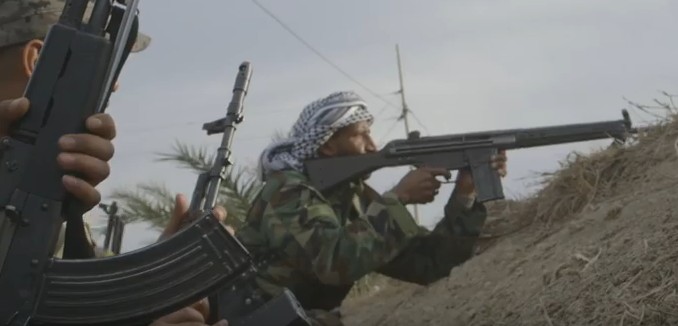In addition to ensuring that Tehran will be able to develop a nuclear weapon within 15 years, the nuclear deal with Iran has “worsened the sectarian conflicts of the Middle East and exported them to Europe,” Lee Smith, a senior fellow at the Hudson Institute, argued in an article published Monday in The Weekly Standard.
Smith wrote that President Barack Obama, whose goal upon assuming office was to “extricate America from Middle East conflicts,” saw no value in “engaging in the endless wars of the Middle East.” However, another factor pushed the president to stand on the sidelines at a time when American intervention could have helped protect thousands of civilians from the ravages of the Syrian conflict.
No less important, he feared that backing proxy forces to topple Syrian dictator Bashar al-Assad was likely to anger Assad’s patrons in Tehran, causing them to walk away from the deal. Senior members of his own cabinet recommended to the president that we at least establish a buffer zone, or a no-fly zone to protect those fleeing from Assad and his allies, a policy that would have had bipartisan support. But protecting those refugees might have required firing on the forces hunting them, angering the Iranians, so Obama turned a deaf ear. The Iran deal, he thought, would balance out these warring sects and force them to come to an accommodation with each other.
Failing to take action against Iran’s client, Assad, led to a worsening refugee crisis that mostly involved “Sunnis in flight from the campaigns of sectarian cleansing waged by the pro-Iran camp.”
The resulting flood of refugees has overwhelmed neighboring countries such as Jordan, Lebanon, and Turkey. Europe, however, was always regarded as “a more attractive destination,” and when German Chancellor Angela Merkel opened her country’s borders to the refugees, they had all the incentive they needed to make the perilous journey to the continent. According to Smith, the makeup of the refugee population may pose challenges for Europe’s security.
Without question, the vast majority of these poor and huddled masses are simply looking for safety, work, and a future for their families. Some are hustlers, of course, happy to sign up for a handout from self-advertised welfare states. And a few others have war on their minds. War against Europe, and war against each other. A colleague recently back from Germany showed me photographs he’d taken of the refugees. These are Syrians, he said. And these are Iranians. Even among the Syrians are scores of Lebanese and Iraqis, including Shiites, traveling on forged Syrian documents to enhance the probability of finding refuge in Europe. In other words, the two sides of the Middle East’s sectarian conflict, Sunnis and Shiites, have made their way to the continent. Most of them are young men of military age.
Smith added that, if ISIS already managed to send terrorists into Europe, Iran did as well. France in particular was the target of Iranian regime during the 1980’s, and the influx of refugees who can’t be perfectly screened could lead to “a replay of previous waves of terror in Europe, which is to say further terrorist attacks, street violence, and assassinations.”
Earlier this year, Smith warned that using the nuclear deal to strengthen Iran would likely alienate Sunnis in the region and guarantee that more of them gravitate towards ISIS for protection from Iran and its proxies.
Smith also observed that Iran’s hardliners would be the ones to benefit the most from the nuclear deal. In April, he wrote that “the administration is not striking a deal with Iranian moderates or the good people of Iran who we are frequently told love America and have no issue with Israel… Rather, the White House is coming to an accommodation with a sick regime.” In July, he emphasized that the deal would most likely strengthen Iran’s Islamic Revolutionary Guard Corps, which has been designated for sanctions by the State Department for its nuclear proliferation activities and its support of terror.
[Photo: VICE News / YouTube ]”




